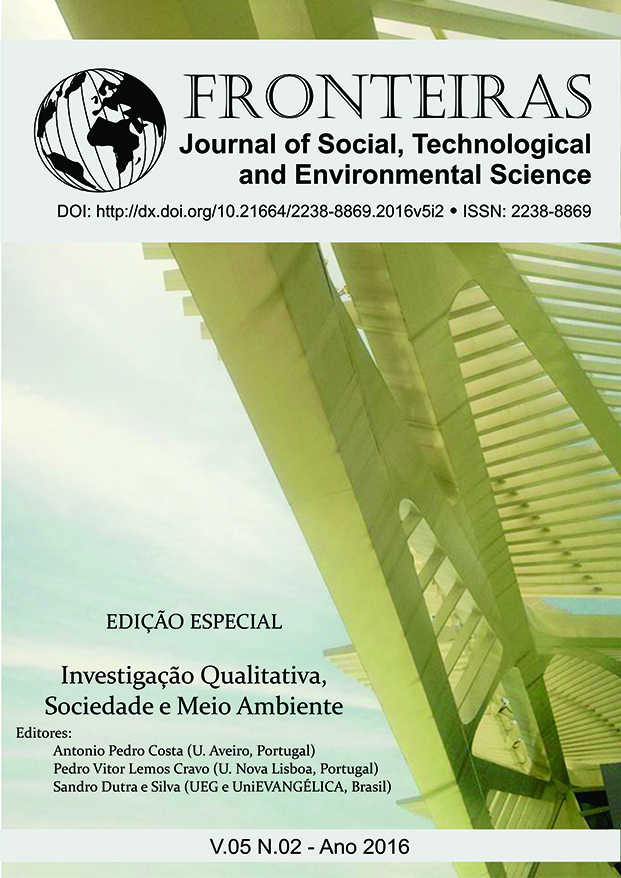Semantic Fields to Improve Business: the hotels case
DOI:
https://doi.org/10.21664/2238-8869.2016v5i2.p47-60Resumo
A tomada de decisões a partir de um turista depende da experiência de mídia social. Para os turistas, a importância das fontes qualitativas (por exemplo, comentários em fóruns de sites, blogs e redes sociais: tecnologias de Internet) é crescente para as empresas turísticas. A percentagem representativa de turistas escolhem destinos graças às opiniões de outros usuários. Neste artigo, utilizamos a metodologia de análise de sentimento e mineração opinião para capturar palavras-chave e mensagens de ligação com um campo semântico singular para encontrar os principais conceitos de comentários on-line coletadas em plataformas de opinião de reserva e dicas para os turistas que se hospedam em hotéis. Conclui-se que os hotéis de encontrar nos campos semânticos uma ferramenta para a observação de forças e fraquezas internas e oportunidades e ameaças externas.Referências
Bhattacherjee A, Sanford C 2006. Influence Processes for Information Technology Acceptance: An Elaboration Likelihood Model. MIS Quarterly 30(4).
Boyd D 2007. Why Youth (Heart) Social Network Sites: The Role of Networked Publics in Teenage Social Life. In MacArthur Foundation Series on Digital Learning Youth, Identity, and Digital Media Volume, MIT Press, Cambridge, MA.
Celaya J 2008. La Empresa en la Web 2.0. Editorial Grupo Planeta, Barcelona.
Colaco P 2010. Booking.com, ¿tu peor mejor amigo?, TecnoHotel 734: 46-47.
Chatterjee P 2001. Online reviews: Do consumers use them? Advances in Consumer Research, 28: 129-133.
Fondevila-Gascón JF 2010. El cloud journalism: un nuevo concepto de producción para el periodismo del siglo XXI, Observatorio (OBS*) Journal, 4(1):19-35.
Fondevila-Gascón JF 2014. El uso de hipertexto, multimedia e interactividad en periodismo digital: propuesta metodológica de ranking de calidad. ZER, Revista de Estudios de Comunicación (Journal of Communication Studies), 19(36):55-76.
Fondevila-Gascón JF, Carreras-Alcalde M, Del Olmo-Arriaga JL 2012. Impacto de las tecnologías de la información y la comunicación en la elección de Universidad: el caso de Internet y las redes sociales. Edutec-E. Revista Electrónica de Tecnología Educativa, 39:01–12.
Fondevila-Gascón JF, Carreras-Alcalde M, Mir-Bernal P, Del Olmo-Arriaga JL, Pesqueira-Zamora MJ 2014. El impacto de la mensajería instantánea en los estudiantes en forma de estrés y ansiedad para el aprendizaje: análisis empírico. Didáctica, Innovación y Multimedia, 10(30).
Fondevila-Gascón JF, Del Olmo-Arriaga JL, Sierra-Sánchez J 2012. Búsqueda de información y redes sociales: el caso de la universidad. Vivat Academia, 117-bis), XIV: 497–511.
Fondevila-Gascón JF, Mir-Bernal P, Rom-Rodríguez J, Santana-López E, Botey-López J 2016. Tendencias en métricas en medios sociales. Impacto en la publicidad. In Ingrid Zacipa-Infante, Victoria Tur-Viñes, Jesús Segarra-Saavedra. Tendencias publicitarias en Iberoamérica. Diálogo de saberes y experiencias, Colección Mundo Digital, Universidad de Alicante. p.155-170.
Fondevila-Gascón JF, Mir-Bernal P 2014. Brand.com. How Internet transforms reputation management. EBES Conference, Barcelona.
Fondevila-Gascón JF, Perelló-Sobrepere M 2014. The rise of Twitter in the Latin American landscape: a study of the most followed accounts in Brazil, Mexico, Argentina, Colombia and Venezuela. ALAIC (Revista Latinoamericana de Ciencias de la Comunicación), 10(19):108-119.
Hennig-Thurau T, Gwinner KP, Walsh G, Gremler DD 2004. Electronic word-of-mouth via consumer-opinion platforms: What motivates consumers to articulate themselves on the Internet? Journal of Interactive Marketing, 18(1):38-52.
Jia L, Yu C, Meng W 2009. The Effect of Negation on Sentiment Analysis and Retrieval Effectiveness. Proceedings of the 18th ACM International Conference on Information and Knowledge Management (CIKM 2009).
Khammash M, Griffiths GH 2011. Arrivederci ciao.com, buongiorno bing.com’ — electronic word-of-mouth (eWOM), antecedences and consequences. International Journal of Information Management, 31(1):82–87.
López M, Sicilia M 2013. Boca a boca tradicional versus electrónico: la participación como factor explicativo de la influencia del boca a boca electrónico. Revista Española de Investigación de Marketing, ESIC, 17: 07-38.
Luo X, Andrews M, Song Y, Aspara J 2014. Group-Buying Deal Popularity. Journal of Marketing, 78(2):20-33.
ONTSI 2012. La Sociedad en Red. ONTSI, Madrid.
Pang B, Lee L 2008. Foundations and Trends in Information Retrieval. Opinion mining and sentiment analysis, 2(1-2):01-135.
Pang B, Lee L, Vaithyanathan S 2002. Thumbs up?: sentiment classification using machine learning techniques. Proceedings of the ACL-02 conference on Empirical methods in natural language processing, 10:79–86.
Serra A, Salvi F 2014. New consumer behavior: A review of research on EWOM and hotels. International Journal of Hospitality Management, 36: 41-52.
Sparks B, Browning V 2011. The impact of online reviews on hotel booking intentions and trust. Tourism Management, 32(6):1310-1323.
Taboada M, Brooke J, Tofiloski M, Voll K, Stede M 2011. Lexicon-based methods for sentiment analysis. Computational linguistics, 37(2):267–307.
Vermeulen IE, Seegers D 2009. Tried and tested: The impact of online hotel reviews on consumer consideration. Tourism Management, 30: 123-127.
Wang Y, Fesenmaier DR 2004. Towards understanding members’ general participation in and active contribution to an online travel community. Tourism Management, 25: 709-722.
Zhu F, Zhang X 2010. Impact of Online Consumer Reviews on Sales: The Moderating Role of Product and Consumer Characteristics. Journal of Marketing, 74(2):133-148.
Downloads
Publicado
Como Citar
Edição
Seção
Licença
Esta revista oferece acesso livre imediato ao seu conteúdo, seguindo o princípio de que disponibilizar gratuitamente o conhecimento científico ao público proporciona maior democratização mundial do conhecimento.
A partir da publicação realizada na revista os autores possuem copyright e direitos de publicação de seus artigos sem restrições.
A Revista Fronteiras: Journal of Social, Technological and Environmental Science segue os preceitos legais da licença Creative Commons - Atribuição-NãoComercial 4.0 Internacional.


